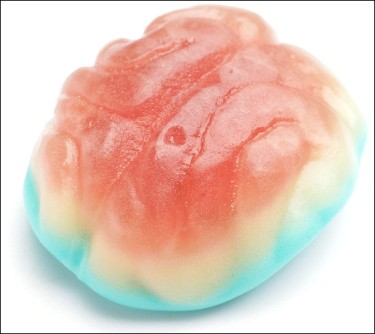
It’s hardly surprising that edibles have an expiration date. Food items are subject to spoilage and a decline in freshness over time. So, what’s the protocol when stumbling upon a forgotten stash of infused gummies or a neglected cookie tucked away in the pantry? Here are some key points to bear in mind regarding the perishability of cannabis-infused edibles.
Check the Ingredients
Let’s begin with a dose of common sense. Carson Shipley from Seattle’s (Lux) Pot Shop aptly pointed out that it really just comes down to the starting material.” Different foods have varying levels of perishability, impacting their shelf life. For instance, a freshly baked cake without preservatives won’t endure as long as a more shelf-stable item like a lollipop.
The lifespan of an edible depends on variables such as its variety, manufacturing process, and the inclusion of preservatives. Jesse Poe, overseeing Edibles Operations at Chalice Farms in Oregon, further clarified, “An edible’s shelf life is contingent upon its type, production method, and the presence of added preservatives.”
Certain cookies and brownies are engineered to be packaged and retain their quality for extended periods, akin to the famously resilient Twinkie. These products naturally outlast homemade infused counterparts. While some items may not spoil outright (think chocolate bars or gummies), they can lose their freshness and appeal over time, becoming stale.
This is where our innate sensibility and evolutionary instincts serve us well. When in doubt about an edible’s condition, rely on your senses. If the color, texture, aroma, or taste seem off, discard it.
Check Expiry Dates
In the realm of legal dispensaries, virtually all packaged edibles come equipped with a crucial piece of information: the best-before or expiration date. Jesse Poe emphasizes the importance of consulting the manufacturer for accurate shelf-life guidance, noting, “Each edible is different.”
For products containing highly perishable ingredients such as fresh butter or dairy, adhering to the manufacturer’s expiration date is advisable. However, what about shelf-stable options like lollipops, gummies, or chocolate? Should you discard them once the best-before date has lapsed? Not necessarily.
While sugar is a reliable preservative, prolonged storage may lead to undesirable texture, colour, and flavour changes. Carson Shipley explains, “The best-by date primarily reflects the shelf life of the ingredients used, rather than the potency of the edible. Items like gummies or chocolate may gradually lose their freshness, akin to grocery store products.”
This prompts another important query: do cannabinoids like THC and CBD break down as time passes? Delving into how potency interacts with cannabinoids introduces a new dimension of complexity to the conversation about the durability of edibles.
Cannabinoids Degrade But Don’t Go Bad
The comforting truth is that cannabinoids like THC and CBD, the critical components in edibles that dictate their effects, don’t spoil conventionally. However, they experience degradation, leading to shifts in their molecular composition over time, which could ultimately affect their potency and their effects.
Take THC, for instance, which can degrade into another cannabinoid known as CBN (Cannabinol). CBN is often recognized as the “sleepy cannabinoid,” with emerging research hinting at its soothing properties.
Consequently, ageing or exposure to excessive heat, light, and oxygen can prompt the transformation of THC into CBN. As CBN is notably less intoxicating than THC, the uplifting euphoria associated with THC might transition into drowsiness if the edible has been stored for an extended period.
While the effects of CBN are being further explored, the consensus is that old edibles are likely to be less potent due to cannabinoid degradation. Jesse Poe explains that cannabinoids degrade over time. The degradation rate depends on how the edibles are stored and preserved. It is common for an edible to decrease potency by 10 to 20% per year if not stored properly.”
Factors such as air, heat, light, and time all contribute to the gradual decline in cannabinoid potency, underscoring the critical importance of proper storage practices for preserving the efficacy and longevity of edibles.
Tips for Effective Storage
We recommend storing edibles in a cool, dry, and dark place. Exposure to environmental elements like sunlight and heat can swiftly degrade the edible and its potency. An airtight container in a pantry or cupboard is a practical storage solution for most store-bought and shelf-stable items such as candy and chocolate. If refrigeration is necessary for perishable products, the label should indicate so.
What about storing gummies and chocolate in the fridge or freezer? Will this prolong their shelf life? While refrigeration can indeed extend the lifespan of edibles, it’s crucial to note that unless they’re sealed in airtight containers, they may absorb flavours and moisture from the surroundings.
For homemade infused edibles like condiments, oils, or butter, expect a similar shelf life to their non-infused counterparts. To maintain their quality, it’s essential to shield them from air, light, and heat.
Lastly, a vital consideration in edible storage is safety. With the expansion of cannabis legalization and the widespread availability of hemp-derived CBD products, incidents of children and pets accidentally accessing edibles are on the rise. To prevent such occurrences, always securely lock your stash in a safety box to ensure it doesn’t fall into the wrong hands.
Conclusion
Just like regular food, cannabis-infused treats can spoil. Check the packaging for a best-before date when buying pre-made edibles. If you’re making them yourself, follow the same guidelines you would for cooking any food.
It’s important to note that the cannabinoids in edibles, such as THC and CBD, can undergo changes as time passes, which may impact how they affect you. To preserve their freshness and potency, store edibles in tightly sealed containers, protecting them from moisture, heat, and light.
By doing so, you can maintain their quality and ensure a more satisfying experience when you indulge in them. Keeping these storage practices in mind can help you get the most out of your cannabis-infused treats.
DOES WEED GO BAD? READ MORE…
CAN YOUR WEED GO BAD OR EXPIRE? CAN YOU STILL SMOKE IT?
- SEO Powered Content & PR Distribution. Get Amplified Today.
- PlatoData.Network Vertical Generative Ai. Empower Yourself. Access Here.
- PlatoAiStream. Web3 Intelligence. Knowledge Amplified. Access Here.
- PlatoESG. Carbon, CleanTech, Energy, Environment, Solar, Waste Management. Access Here.
- PlatoHealth. Biotech and Clinical Trials Intelligence. Access Here.
- Source: http://cannabis.net/blog/funny/do-marijuana-edibles-spoil-or-go-bad-after-a-certain-amount-of-time




